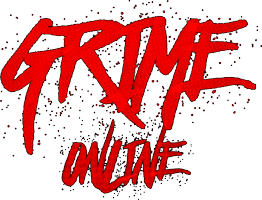“THEY SAY my crew’s British. We pull up like, ‘Who’s with it?’ Load that clip like grrr, finish,” rapped J Emz, a member of OneFour, a Sydney drill crew, in 2019, responding to accusations that the group feigns a British identity to polish its street cred. The threat to mow down critics did not impress Mac11, a member of 21District, a rival crew. “Trying to be UK Bronx, bunch of flops. Do your own thing, you wannabe British gronks.”
Your browser does not support the <audio> element.
Rappers outside the United States used to sound American. Nowadays, the spread of grime music and UK drill means aping England’s rappers is fashionable. Grime, which uses very rapid beats, emerged in east London in the early 2000s. Drill appeared in Chicago a decade later and soon migrated to Britain, where it got faster and darker. Drake, a prominent Canadian rapper, has borrowed from UK drill and promoted many London rappers.
Crucial to UK drill’s success is multicultural London English (MLE), a dialect that combines Jamaican patois with Cockney, American and African slang, as well as other influences from London’s melting-pot. “Akhi”, from Arabic, is commonly used for “brother”, its direct translation, and also “friend”. “The language comes first from the street,” says Tony Thorne of King’s College London, who has compiled a drill dictionary. “Then the performers elaborate the language, then they feed it back to the street.” MLE has helped English rappers create a distinctive sound, with a controversial social commentary.
As UK drill has spread around the world, so has MLE. Dutch crew 73 De Pijp mix in words like “mandem” (from Jamaican patois, meaning a group of male friends) and “oppboys” (a London neologism for a rival gang). Spanish crew 970BLOCK use MLE lingo like “you get me” and “gally” and break into English to compare themselves to Headie One, a London MC: “I’m the one like Headie.” Catarrh Nisin, a Japanese grime MC, refers to Boy Better Know, a London grime crew, and raps “Keep it grimy.” Some Irish MCs, such as J.B2, have abandoned their native accents altogether.
MLE has also crept into Australian drill. OneFour use a range of MLE words, such as “bruddas” (brothers) and “shh” (silence), a term popularised by Headie One in 2018 to self-censor possibly incriminating lyrics. Even 21District use some MLE, despite their criticism of OneFour’s Anglophilia. Many Australian drill MCs are of Polynesian descent and their accents are already different to most young Australians, so a multi-ethnic dialect appeals to them. Australia, like Britain, has tight gun laws and plenty of knife crime, so London’s lingo is more relevant than gun-centric American rap. “Cheffed” (stabbed), “rambo” (long knife) and “ching” (knife) are common. Australian rappers mix MLE with local slang, old Aussie lingo—“digger” (friend), used by Anzac troops in the first world war—and Polynesian—“uso”, Samoan for “brother”.
Variants of MLE have emerged in other English cities, even among young middle-class folk. The same thing is starting to happen in Australia. Kate Burridge, professor of linguistics at Monash University in Melbourne, notes that her teenage son jokingly uses MLE words such as “mandem”. Her colleague Howard Manns says some young Australians use “peng” to mean attractive or high-quality. It is thought to derive from “kushempeng”—fantastic marijuana, in Jamaican patois.■
This article appeared in the Britain section of the print edition under the headline “Learning the drill”
Discover stories from this section and more in the list of contents
So is the number of people in need. Helping them will be tricky
And in doing so make the House of Lords worse
It would eventually bring down energy bills, but won’t help this winter
Published since September 1843 to take part in “a severe contest between intelligence, which presses forward, and an unworthy, timid ignorance obstructing our progress.”
Copyright © The Economist Newspaper Limited 2022. All rights reserved.


